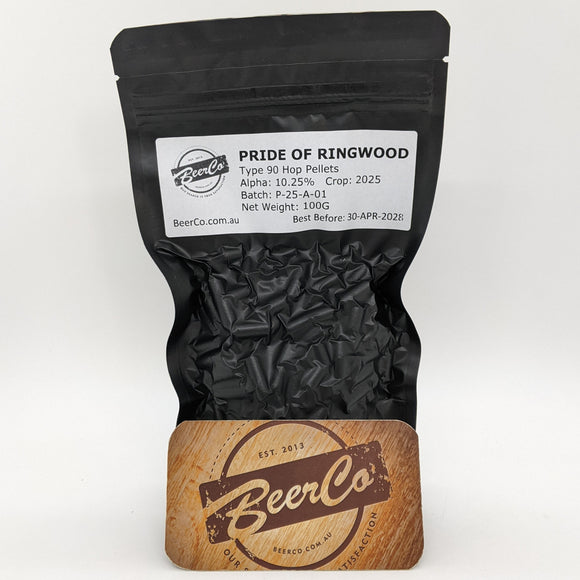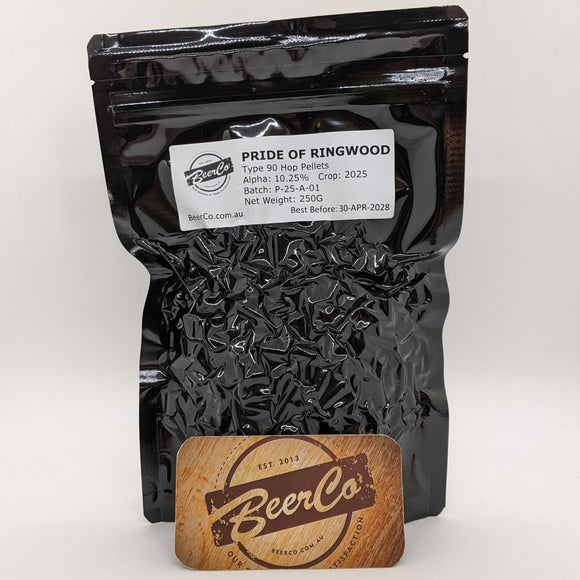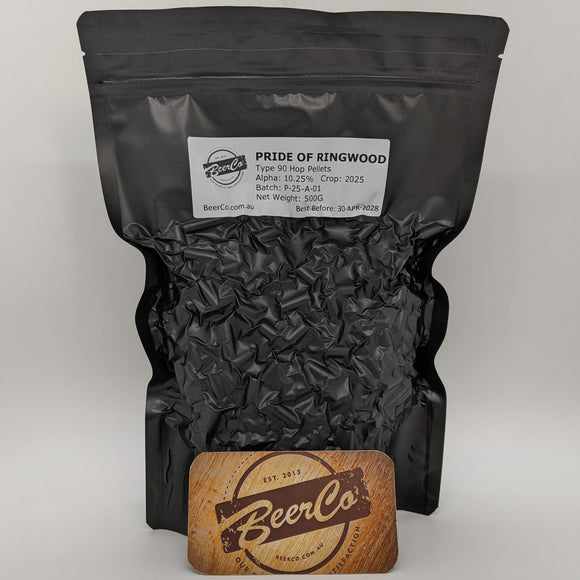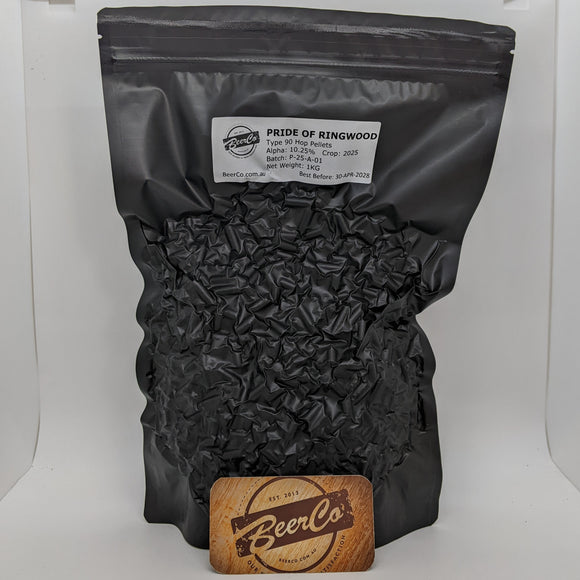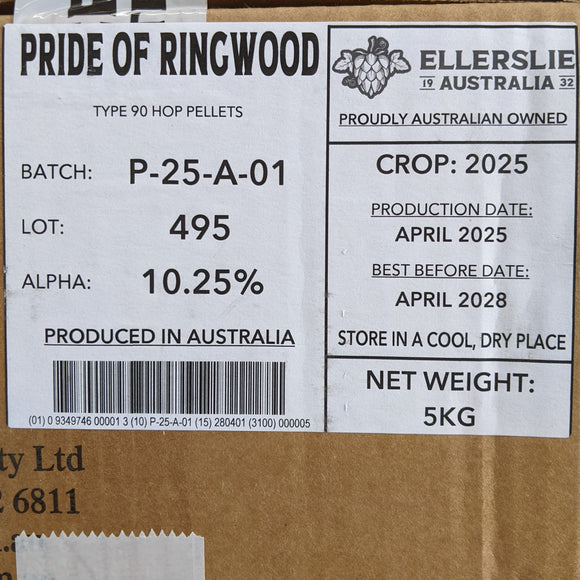Pride of Ringwood Hops is the quintessential Australian hop. This hops variety was the highest alpha acid hop in the world when it was released in 1965. Other varieties such as Super Pride have taken over that title. Bred from Pride of Kent and open pollination by the Carlton and United Breweries in Melbourne, Australia, Pride of Ringwood at one time occupied more than 90% of the hops production in Australia. This variety was once grown in Kashmir, India, and matures too late to be grown in the United States, and so it predominantly sticks to its roots in the Commonwealth of Australia.
Pride of Ringwood Hops is considered a bittering hop variety although it carries favourable aromatic qualities. The alpha acid content rings in at 7.0%-10.5% and is a dominating force in the Ales and Lager beers from the region. The aroma of Pride of Ringwood Hops can be described as having a spicy kick with essence of citrus and fruit-like tones. The aroma is strong yet delectable, and will be very noticeable in late additions in the wort.
Form:
- Type 90 Hop Pellets
Pack Sizes:
- 100g
- 250g (SAVE 10% on 100g Price)
- 500g (SAVE 15% on 100g Price)
- 1 Kg (SAVE 20% on 100g Price)
- 5 Kg (SAVE 50% on 100g Price)
Pedigree:
Pride of Ringwood Hop variety was developed by Bill Nash at the Ringwood Hop Research Station in Ringwood, Victoria. At that time, Bill also worked for the Carlton and United Brewery. It was bred from English variety Pride of Kent through open pollination.
Aroma
- Cedar
- Oak
Style Guidance
- Amber Ale
- American Pale Ale
- Australian Lager
- Fruit Lambic
- Golden Ale
- Lager
- Pale Ale
- Strong Ale
Substitutes:
- Cluster
- Galena
- Super Pride
Brewing Values:
ANALYTICAL DATA
- Crop Year: 2025 Batch: P-25-A-01 Alpha Acids: 10.3%
- Beta acids (%) 4-8
- Alpha/Beta Ratio
- Cohumulone (% of alpha acid) 33-39
- Oil Concentration (ml oil/g alpha)
- Total Oils (ml/100g) 1.1
- Myrcene (% of whole oil) 24-41
- Caryophyllene (% of whole oil) 9-14
- Farnesene (% of whole oil) <1
- Humulene (% of whole oil) 2-4
- Selinene (% of whole oil) 19-30
- Humulene/Caryophyllene ratio

